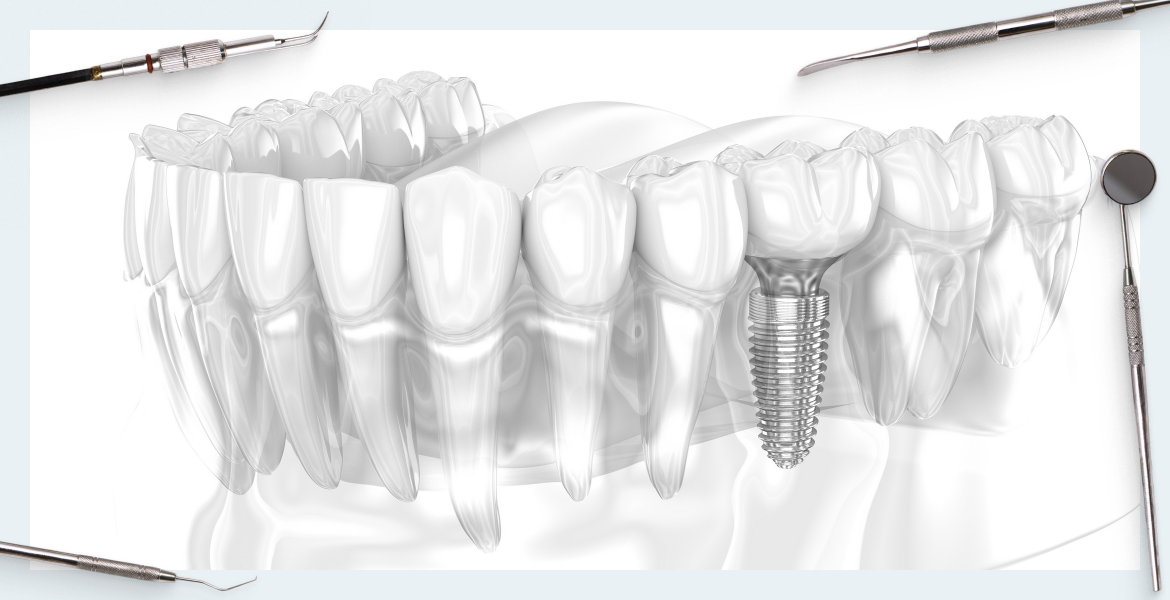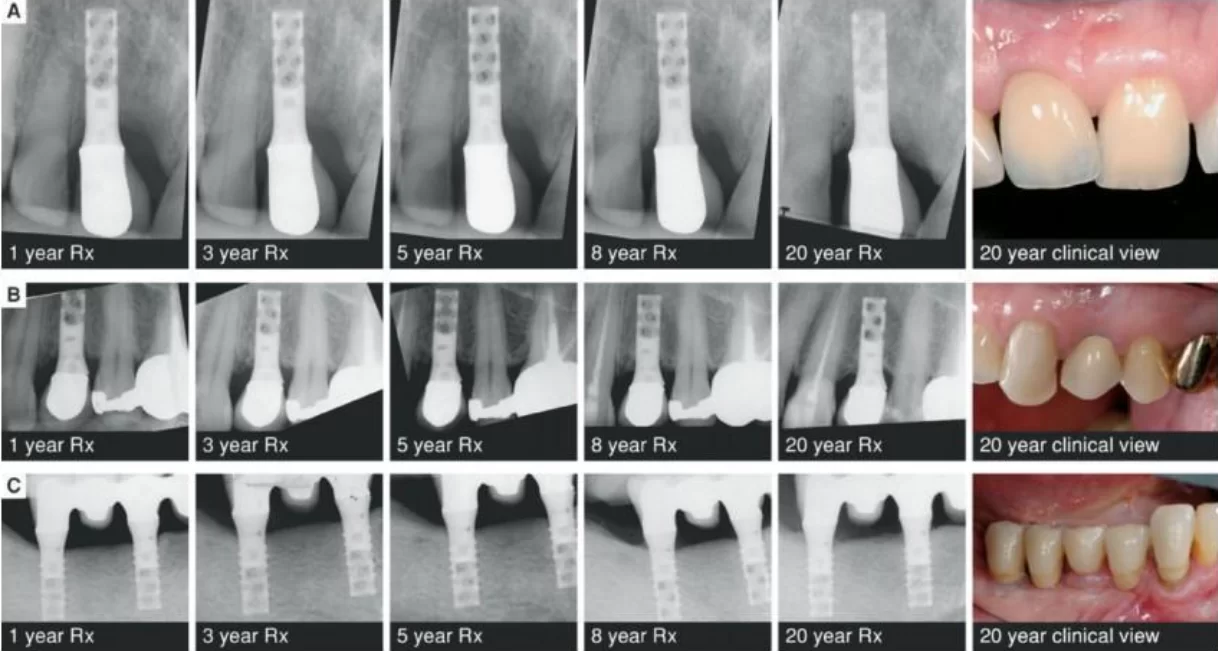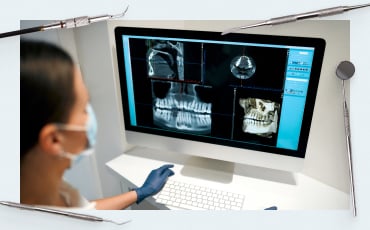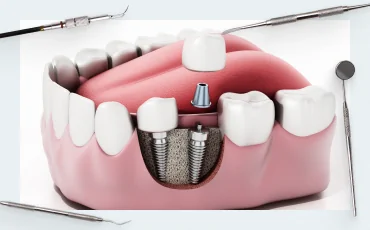How long can an implant last? A review of a 20-year clinical study of patients who received fixed titanium implant restorations

Dentists often have to hear the question: how long will my implants serve? For the patient, this is an important question and seems simple, but it is difficult for the dentist to give an unambiguous answer because it is difficult to explain all the factors that influence the long-term survival of the implant. It is especially difficult to give an objective assessment if the practicing dentist is limited to a 3 to 7-year period of his observations. Therefore, we decided to review a large-scale study from Switzerland.
Results and timing of a large-scale study
This first-class study by Prof. Buser’s group was done in Switzerland. The study included patients who received implants at the University Hospital of Bern between 1986 and 1989. Plasma-sprayed titanium hollow cylindrical tissue-level implants were placed.
It should be noted that this design of implants and, most importantly, plasma spraying have not been used for a long time. The hollow form leads to frequent implant failures, and plasma treatment as well as anodizing of the implant surface leads to excessive microporosity.
Today, medium roughness is preferable because it causes fewer peri-implantitis problems. Despite this, implants have shown excellent results! If we use Albertson’s method, none of the surviving implants lost more than 1.8 mm of bone crest – a success rate of 89.5%! If we count according to Dr. Buser’s method and do not include in the number of successful implants the implants with a history of peri-implantitis, although treated and healed, the success rate for 20 years was 75.8%!
These are the numbers we can safely use if we are asked about implant success, saying that “the longest and most objective observational data are from the mid-80s and they show an average success rate of 80%”.
A summary of Dr. Buser’s study
Clin Implant DentRelatRes.2013 Dec;15(6):780-90. doi: 10.1111/cid.12056
Long-term outcomes of dental implants with a titanium plasma-sprayed surface: a 20-year prospective case series study in partially edentulous patients.
Chappuis V,Buser R,Brägger U,Bornstein MM,Salvi GE,Buser D.
ABSTRACT
Background:
Long-term studies of ≥10 years are important milestones to get a better understanding of potential factors causing implant failures or complications.
Purpose:
The present study investigated the long-term outcomes of titanium dental implants with a rough, microporous surface (titanium plasma sprayed [TPS]) and the associated biological and technical complications in partially edentulous patients with fixed dental prostheses over a 20-year follow-up period.
Materials and Methods:
Sixty-seven patients, who received 95 implants in the 1980s, were examined with well-established clinical and radiographic parameters. Based on these findings, each implant was classified as either successful, surviving, or failed.
Results:
Ten implants in nine patients were lost during the observation period, resulting in an implant survival rate of 89.5%. Radiographically, 92% of the implants exhibited crestal bone loss below 1 mm between the 1 and 20-year follow-up examinations. Only 8% yielded peri-implant bone loss of >1 mm and none exhibited severe bone loss of more than 1.8 mm. During the observation period, 19 implants (20%) experienced a biological complication with suppuration. Of these 19 implants, 13 implants (13.7%) had been treated and were successfully maintained over the 20-year follow-up period.
Therefore, the 20-year implant success rate was 75.8 or 89.5% depending on the different success criteria. Technical complications were observed in 32%.
Conclusion:
The present study is the first to report satisfactory success rates after 20 years of function of dental implants with a TPS surface in partially edentulous patients.
Given that modern implants have a much lower risk of failure, and new surface treatment methods for titanium implants have reduced the risk of peri-implantitis, the prospects for modern restorations are no worse than the implants by Prof. Buser’s group studied.
However, remember to warn patients that the long-term survival prospects of implants depend largely on their behavior. Unfortunately, not all patients practice good hygiene, and bad habits such as smoking can significantly increase the likelihood of implant loss.








